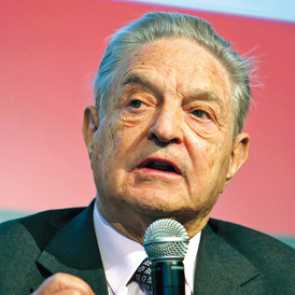News flash for market copycats: Harvard didn’t ‘dump’ its Israeli shares, it adjusted its portfolio.
By Eytan Avriel
Last week the money-management crowd on Wall Street had another shock: Harvard University’s investment company sold its holdings in Israeli shares.
The story began with a routine report. The Harvard Management Company, which has tens of billions of dollars under management and a reputation for terrific yields, published the state of its holdings in the second quarter. The sharp of eye noted that while in the first quarter the company had tens of millions of dollars in Israeli shares, in the second quarter all these holdings had gone. To add insult to injury, the company bought Turkish shares.
Among the Israeli holdings it sold were $30 million in Teva Pharmaceutical Industries and a few million in Check Point Software Technologies and Cellcom.
The road to drama was short. Was the selloff politically motivated? Did it have anything to do with the Turkish flotilla? Pro-Palestinian groups crowed. There was a precedent: In 2002 a group of 39 Harvard professors signed a petition calling for a cessation of investment in Israel.
Harvard did not delay in responding. The real reason for the Israeli stock selloff, said its spokesman, was that Israel had been upgraded to a developed market: Its shares are no longer considered an investment in emerging markets. Harvard even said it still owns Israeli shares, but they are in portfolios managed by external investment companies, so they did not appear in the report.
Since there is no reason to doubt Harvard’s credibility, we can sum up the uproar in one word: Groundless.
America’s universities did not decide to dump Israeli shares. There are no grounds for worry: There is no wave of selling by foreign investors, neither for political nor technical reasons, because the adjustment to the change in Israel’s status is complete.
Copying from the best
The selloff of the Israeli shares did not come to light by chance. Investors follow each other’s moves, mainly the moves of the big boys with good names. Everybody wants to know what George Soros and Henry Paulson are buying and selling.

It’s natural. Who wouldn’t want to know what orders Yitzhak Tshuva handed down this morning? Or Bank Hapoalim, Nochi Dankner and Finance Minister Yuval Steinitz for that matter. Wouldn’t you like to know what they’re up to so you can tweak your portfolio? You can’t know: That information isn’t in the public domain, not in any immediate sense.
In Israel, for instance, the list of assets held by provident funds is released at a five-month delay. In the United States, the law requires investment bodies to publish their holdings within 45 days of a quarter’s end.
We find that the Harvard Management Company invests mainly in emerging-market shares, usually via indexes. Its biggest holdings are in Brazil and China, followed by South Korea, South America, India and Russia.
Soros owns a vast pile of gold and has reduced his holdings in American shares. Other investment mavens such as Steve Cohen, Carl Icahn, David Einhorn and Jeff Vinik have bet hugely on oil-drilling stocks, which some market animals think will soar after being hammered by the giant oil spill in the Gulf of Mexico and the subsequent collapse in BP’s share price.
But anybody who plays follow the leader in investments should be wary. First of all, again, movements are revealed at a lag. Publication of these movements will affect the market, and it’s entirely possible that when the hordes follow in their wake and asset prices increase, the big boys will sell.
Also, the information is partial at best. American law requires disclosure of holdings in American securities, not in foreign securities, commodities, options and many other assets. A fund manager can easily create an illusion of a holding in a certain asset when in practice he bet against it.
Third, nobody can assure that once a star, always a star. Even the big boys come a cropper now and again. It’s like sitting in an exam and copying from the guy next to you. You don’t know whether his answers are the right ones, and you don’t know if what he’s really trying to do is throw you off track.
https://www.haaretz.com/2010-08-23/ty-article/why-did-harvard-dump-its-israeli-stocks-and-buy-turkish-shares/0000017f-e8df-df2c-a1ff-fedfed610000, 23.08.10

Leave a Reply